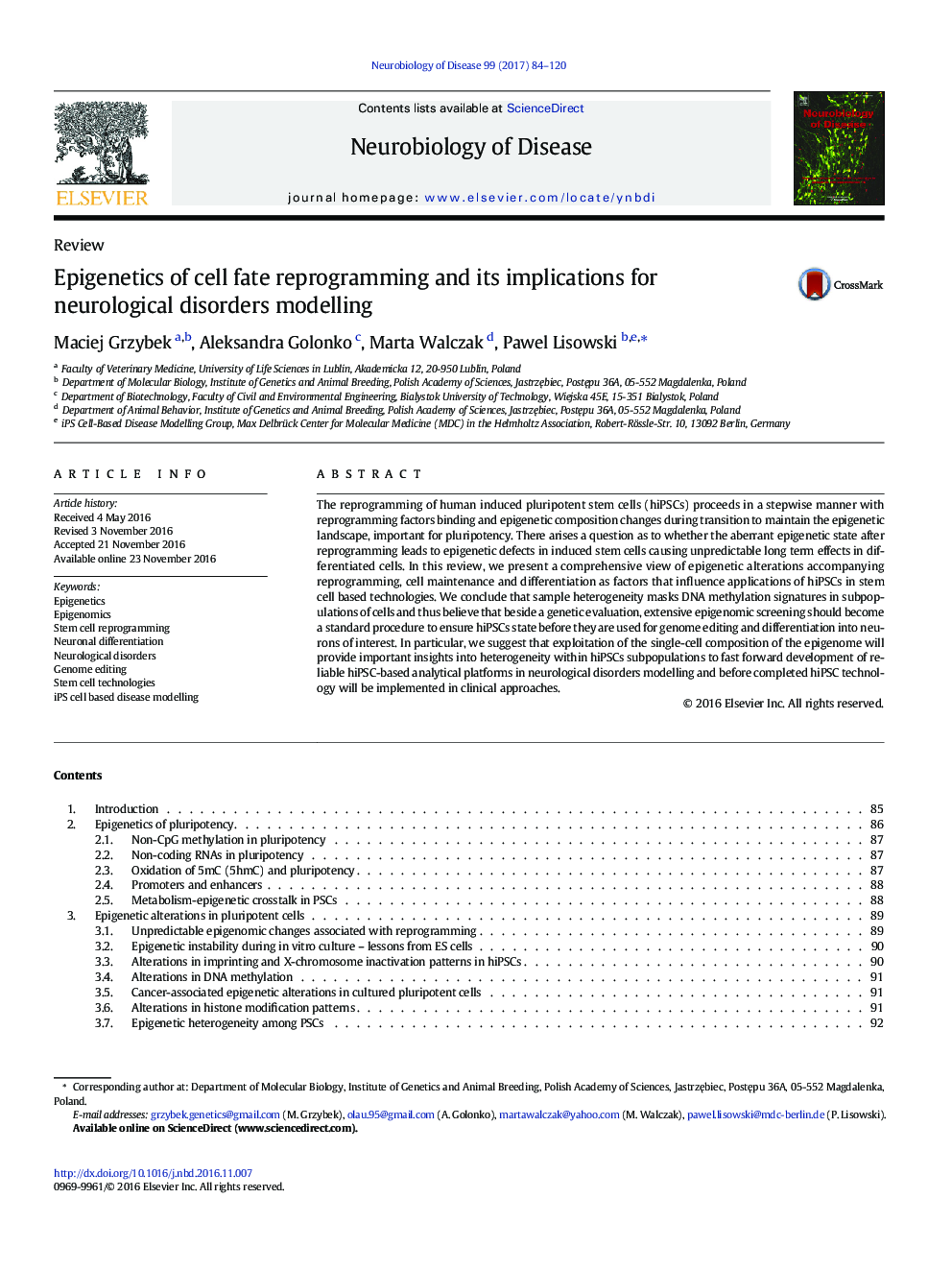| Article ID | Journal | Published Year | Pages | File Type |
|---|---|---|---|---|
| 5630675 | Neurobiology of Disease | 2017 | 37 Pages |
â¢Epigenome of hiPSCs is highly dynamic and sensitive to variation in culture contributing to hiPSCs heterogeneity.â¢Sample heterogeneity masks DNA methylation signatures in subpopulations of reprogrammed cells.â¢Synergistic effects of epigenetic alterations in hiPSCs and differentiating neurons affect neurological disorders modelling.â¢Cross-talk between, stochastic metabolic, transcriptional, and epigenetics in hiPSCs influences neuronal differentiation.â¢Exploitation of the hiPSCs epigenome using single-cell sequencing to identify heterogeneity is necessary.
The reprogramming of human induced pluripotent stem cells (hiPSCs) proceeds in a stepwise manner with reprogramming factors binding and epigenetic composition changes during transition to maintain the epigenetic landscape, important for pluripotency. There arises a question as to whether the aberrant epigenetic state after reprogramming leads to epigenetic defects in induced stem cells causing unpredictable long term effects in differentiated cells. In this review, we present a comprehensive view of epigenetic alterations accompanying reprogramming, cell maintenance and differentiation as factors that influence applications of hiPSCs in stem cell based technologies. We conclude that sample heterogeneity masks DNA methylation signatures in subpopulations of cells and thus believe that beside a genetic evaluation, extensive epigenomic screening should become a standard procedure to ensure hiPSCs state before they are used for genome editing and differentiation into neurons of interest. In particular, we suggest that exploitation of the single-cell composition of the epigenome will provide important insights into heterogeneity within hiPSCs subpopulations to fast forward development of reliable hiPSC-based analytical platforms in neurological disorders modelling and before completed hiPSC technology will be implemented in clinical approaches.
